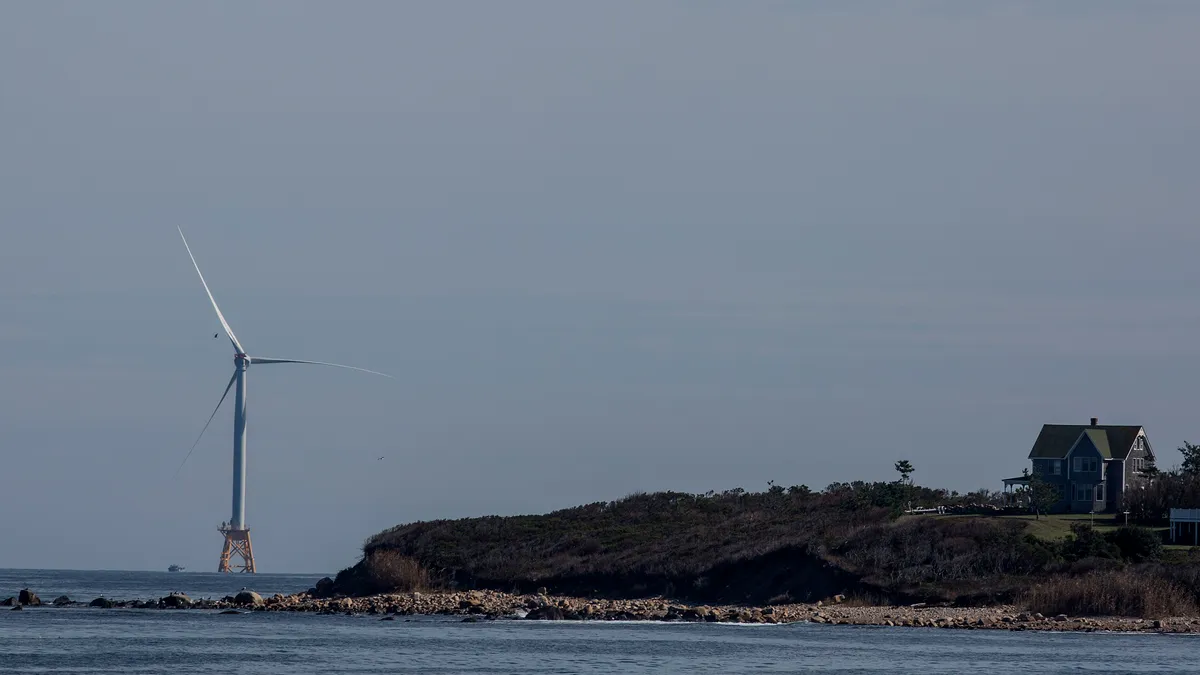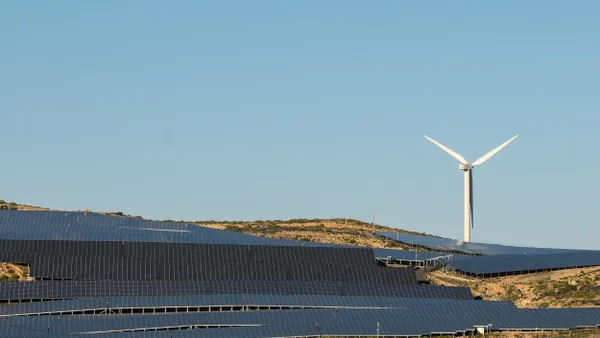UPDATE: May 31, 2022: The Federal Energy Regulatory Commission on Friday approved ISO New England’s plan to transition away from its minimum offer price rule over two years.
In the decision, FERC said the proposal “strikes a reasonable balance among the different considerations raised here, including efforts to ensure resource adequacy, minimize potential adverse effects on reliability that could result from an immediate change to the market rules, promote market certainty, and limit the costs associated with over-mitigation.”
In a concurring statement, FERC Chairman Richard Glick said he wished ISO-NE had proposed ending the MOPR immediately, but he noted the New England states didn’t oppose the plan. He urged ISO-NE to quickly develop a capacity accreditation proposal to ensure the grid operator accurately measures the capacity benefit of all resource types.
Dive Brief:
-
ISO New England has proposed ending its "minimum offer price rule" in 2025, with a transition that exempts up to 700 MW of qualified state-supported capacity — or roughly 2,000 MW of nameplate capacity — from the MOPR over the next two capacity auctions.
-
The proposal responds to complaints ISO-NE was thwarting states' efforts to reduce greenhouse gas emissions. But eliminating the MOPR immediately could cause existing power plants to retire before they can be replaced, creating reliability risks, ISO-NE said in a proposal filed Thursday with the Federal Energy Regulatory Commission.
-
The 700-MW exemption for renewables is "substantial," since it translates to significantly higher nameplate capacity, according to Scott Niemann, ESAI Power director and principal. "From a practical perspective, keeping the current MOPR provisions in place for two more auctions should not have much impact on the auction results," Niemann said Monday in an email.
Dive Insight:
Most New England states and two FERC commissioners oppose ISO-NE's MOPR, saying it is a barrier to the region's clean energy goals. The MOPR is designed to prevent capacity prices from being lowered by generating resources that are built with subsidies.
ISO-NE's previous efforts to accommodate state clean energy goals in its capacity auctions have failed, the grid operator said in its filing with FERC.
Since ISO-NE's Competitive Auctions with Sponsored Policy Resources (CASPR) mechanism took effect four years ago, only 54 MW of state-sponsored resources have been awarded a capacity supply obligation, despite more than 900 MW of those resources seeking capacity revenue through the mechanism, the grid operator said.
Meanwhile, New England's decarbonization goals have increased since CASPR was adopted, according to ISO-NE.
Reflecting that shift, fossil-fueled power plant proposals make up 3% of ISO-NE's interconnection queue, down from almost half in 2015, the grid operator said in its proposal.
In a proposal supported in February by a supermajority of stakeholders, ISO-NE will replace the MOPR with a "more nuanced" mechanism for evaluating new resource capacity market offers for possible buyer-side market power.
The plan calls for replacing the benchmark Offer Review Trigger Price mechanism at the heart of the MOPR with a resource-specific review process that permits a capacity supplier the chance to show it lacks an incentive to exercise buyer-side market power, ISO-NE said.
Also, the new mechanism would exempt state-sponsored clean or renewable resources from the buyer-side review. The proposal also exempts capacity offers from merchant generation and other classes of resources that are not in a strong position to exercise buyer-side market power, the grid operator said.
Eliminating the MOPR and the transition proposal "achieve a reasonable balancing of investor and consumer interests, by minimizing the potential over time for an inefficient overbuild of capacity while providing the necessary time for a more orderly transition of the region's resource mix that will protect both reliability and the interests of the investors in those resources," ISO-NE said.
Also, adopting a two-year transition — with up to 300 MW of state-supported capacity eligible to be exempt from the MOPR in the 2023 auction and 400 MW in the following auction — will help maintain grid reliability, according to ISO-NE.
"An immediate elimination of the MOPR threatens to cause the retirement of existing capacity resources upon which the region relies to maintain reliability," the grid operator said. "Those retirements could occur before the state-sponsored resources are commercially available and able to replace the capacity of the retiring resources, and before the region has had time to develop the tools to properly assess and account for the relative reliability contributions of the exiting and entering resources."














